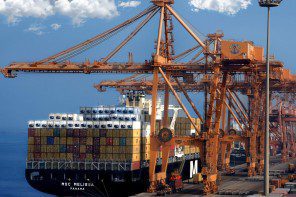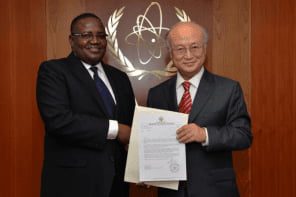 Bangladesh has, recently, experienced yet another round of inflow of Rohingyas through its land and sea borders. Media reports have documented harrowing tales of suffering that the members of the community have endured in Arakan that eventually contributed to their decision to flee and seek refuge in neighboring Bangladesh. The news media was replete with narratives of the desperate people who were lucky enough to set foot in this country. The accompanying photographs of families in boats, pleading for compassion and empathy, only confirmed genuineness of their claims that their lives were at stake in the Arakan state. The gravity of the situation was only confirmed by the fact that international agencies working in that region had to pull out its personnel for safety reason.
Bangladesh has, recently, experienced yet another round of inflow of Rohingyas through its land and sea borders. Media reports have documented harrowing tales of suffering that the members of the community have endured in Arakan that eventually contributed to their decision to flee and seek refuge in neighboring Bangladesh. The news media was replete with narratives of the desperate people who were lucky enough to set foot in this country. The accompanying photographs of families in boats, pleading for compassion and empathy, only confirmed genuineness of their claims that their lives were at stake in the Arakan state. The gravity of the situation was only confirmed by the fact that international agencies working in that region had to pull out its personnel for safety reason.
As the Rohingyas began to reach the Bangladesh border, the law enforcement agencies reported that they had intercepted many and chased away scores of boatloads of people into the sea. Some were made to float in the sea for as many as four days while making repeated attempts to enter Bangladesh. The law enforcers arrested a number of them on charges of illegal entry, a few with bullet injuries from the Cox’s Bazar hospital where they went for treatment.
The law enforcement agencies also claimed in no uncertain terms that they were successful in deporting a good number of Rohingyas back to Myanmar. Only in some instances, due to insistence of local people, were they forced to provide some food, water, and fuel to the wretched Rohingyas before they were pushed back to the uncertainty of the Bay of Bengal. One newspaper reported that ‘the air was heavy with the screams of unwilling deportees.’ Another reported that a newborn was found abandoned in the melee as the boat carrying his family of Rohingya asylum seekers fell prey to the robbers.
The Bangladesh government’s response has been prompt and decisive. It closed the border, suspended the maritime trade and communication arrangements between St. Martin and Monkhali islands of Ukhia for several days, deployed additional platoons of guards at the border outposts, and increased surveillance through beefing up security apparatus that included mobilizing the Border Guards Bangladesh, Coast Guards, and the Navy. Senior functionaries of the state, including the foreign minister, the state minister for home affairs, and the foreign secretary, made statements justifying the sealing of the border on grounds of state sovereignty and national security. Both electronic and print media carried commentaries and comments of academics, diplomats, and experts of various hues, a vast majority of whom applauded the government measures and opined that the country was very much within its remit to reject ‘Rohingya intruders’. One also found that a leading Bangla daily, known for its liberal stance on other issues, subtitling its editorial ‘Rohingya intrusion must be stopped’.
The government of Bangladesh and those in agreement with the government’s position argued their case on the premise that it is the sovereign prerogative of the state to allow or not to allow anyone into its territory. In order to justify their position, the foreign minister and the foreign secretary were at pains to contend that since Bangladesh is not a party to the 1951 UN Refugee Convention or its 1967 Protocol, it is not obligated to accept the Rohingyas.
However, a critical point being missed out in presenting this case is that though Bangladesh is not a state party to the international refugee instruments, the country is obliged under international law to open its door to those who are fleeing persecution and whose life and liberty are at stake in their places of origin. That is because Bangladesh is bound to uphold the principle of non-refoulement as incorporated in the Universal Declaration of Human Rights (UDHR), and the several international human rights treaties that that country is party to such as the International Covenant on Civil and Political Rights; the International Convention against Torture, Inhuman and Degrading Treatment and Punishment; and the Convention on the Rights of the Child. Article 14 of the UDHR clearly stipulates, ‘Everyone has the right to seek asylum and to enjoy in other countries asylum from persecution.’ The UDHR is a common standard of achievement for all people and all nations. Like other civilized states, Bangladesh is obliged to secure the universal and effective recognition and observance of the UDHR principles including that of non-refoulement. This principle reflects the commitment of the international community to ensure to all persons the enjoyment of human rights, including the rights to life, to freedom from torture or cruel, inhuman or degrading treatment or punishment, and to liberty and security of person. These and other rights are threatened when a refugee is returned to persecution or danger.
At the universal level, one also needs to take into account Article 3 (1) of the UN Declaration on Territorial Asylum unanimously adopted by the General Assembly in 1967. It states that: ‘No person … shall be subjected to measures such as rejection at the frontier or, if he has already entered the territory in which he seeks asylum, expulsion or compulsory return to any State where he may be subjected to persecution.’ Because of its wide acceptance, it is UNHCR’s considered view, supported by jurisprudence and the work of jurists, that the principle of non-refoulement has become a norm of customary international law, became part of state practice, and gained a normative character.
The principle has been incorporated in international treaties adopted at the universal and regional levels and being ratified by more and more States including Bangladesh. Moreover, the principle has also been systematically reaffirmed in the Conclusions of the Executive Committee of UNHCR of which Bangladesh has been an active member, and in resolutions adopted by the General Assembly of the United Nations. Para 1 Article 3 of the Convention against Torture, 1984, contends, ‘No State Party shall expel, return (“refouler”) or extradite a person to another State where there are substantial grounds for believing that he would be in danger of being subjected to torture.’ The subsequent paragraph obliges states to take note of ‘patterns of gross, flagrant and mass violations of human rights.’ Needless to say, the Rohingya situation merits all the above conditions. Similarly, Article 7 of the International Covenant on Civil and Political Rights has been interpreted as prohibiting the return of persons to places where torture or persecution is feared. Article 22 on the Convention of the Rights of the Child, an instrument that Bangladesh ratified soon after it was framed, stipulates, ‘State Parties shall take appropriate measures to ensure that a child who is seeking refugee status … receives appropriate protection and humanitarian assistance.’ Needless to say, children constitute a large segment of the Rohingyas who have been knocking on Bangladesh’s door.
Relevant: WHY DO ROHINGYAS UNDERTAKE RISKY SEA JOURNEYS?
The above discussion leads to the conclusion that as the nation, which experienced one of the largest refugee flows of the 20th century, Bangladesh not only has a moral responsibility but is also under legal obligation under international law to allow Rohingyas to enter into its territory and provide protection. By denying access to the Rohingyas and refusing them protection by invoking notions of state sovereignty and national security, Bangladesh has tarnished its image as a responsible member of the comity of nations. Bangladesh needs to reconsider its policy in the light of international legal obligations, and allow entry and temporary protection to the Rohingyas. The international community also has to play its part by sharing the costs. The current Rohingya crisis has once again underscored the need for the country to frame a national law for refugees. Such a law would lay down basic principles of refugee treatment and set up necessary administrative structures to deal with situations such as the Rohingya inflow. If proper procedures were in place, the government’s reaction would not have been as reactive as it has been. The policymakers need to bear in mind that Article 31 of Bangladesh constitution stipulates: ‘To enjoy protection of the law and to be treated in accordance with law, and only in accordance with law, is the inalienable right of every citizen, wherever he may be, or every other person for the time being within Bangladesh, and in particular no action detrimental to the life, liberty, body, reputation or property of any person shall be taken except in accordance with the law’ (emphasis added). It is therefore imperative that concerned authorities take appropriate steps to develop a national law for refugees in right earnest. Let the unfortunate Rohingya experience be the catalyst in fulfilling such a constitutional obligation.
Dr. CR Abrar is Professor of International Relations, and Coordinator of the Refugee and Migratory Movements Research Unit (RMMRU) at the University of Dhaka.
This paper was originally presented at a dialogue entitled ‘Economic Migrants or Asylum Seekers? Rohingyas in Bangladesh’, held at the CIRDAP Auditorium on 17 November, 2012. Reproduced with the consent of the author.
This article was published in our bi-monthly magazine Foreign Affairs Insights and Reviews, Issue 4





